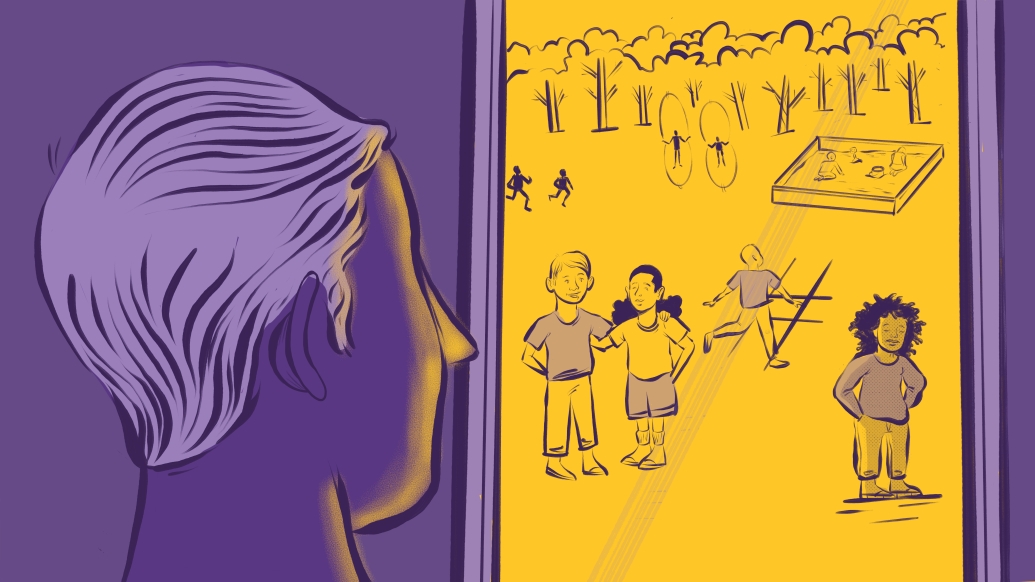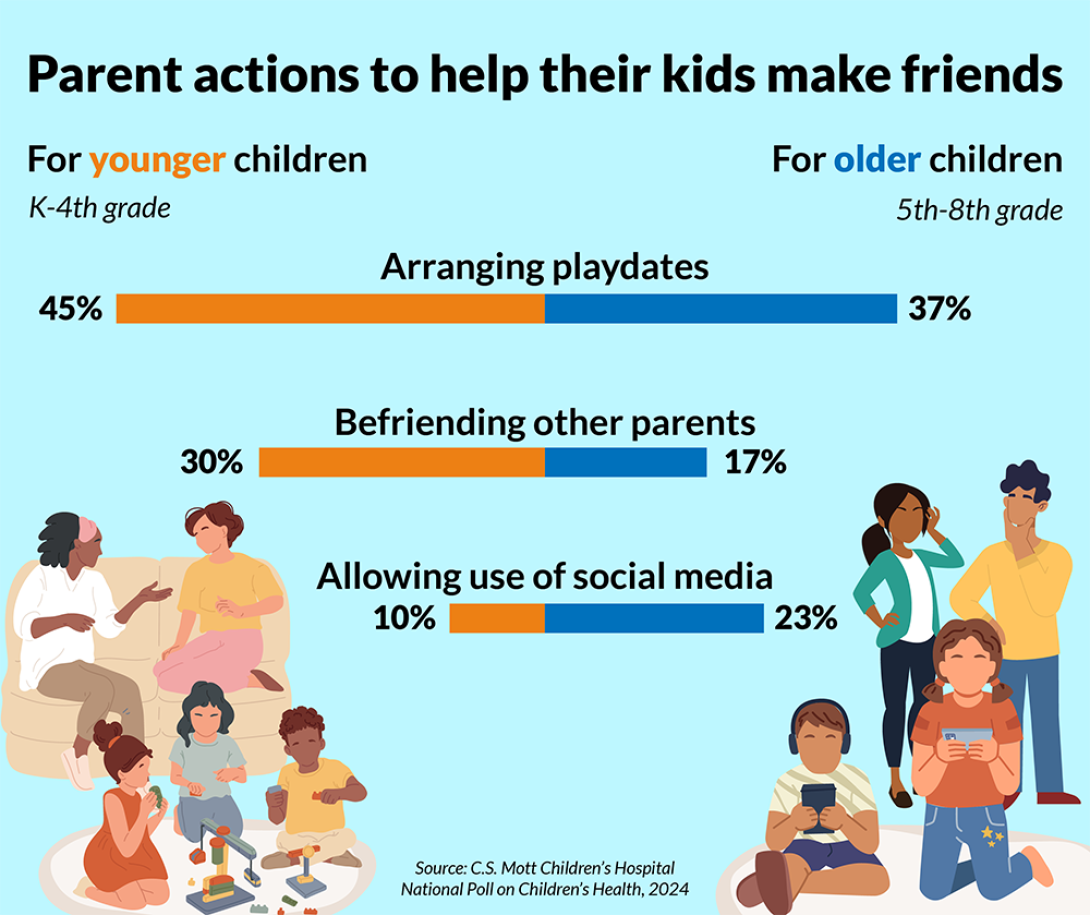One fifth of parents say shyness or social awkwardness impedes child’s efforts to make friends; two thirds of parents want friends to come from like-minded families
12:01 PM
Author |

Developing friendships is often seen as a natural part of childhood, but it may be easier for some kids than others.
And many parents worry about their children’s friendships, according to the University of Michigan Health C.S. Mott Children’s Hospital National Poll on Children’s Health, with one in five saying their child ages six to 12 has no friends or not enough friends.
Ninety percent of parents believe their child would like to make new friends.
“Friendships can play a significant role in children’s overall health and development, emotional wellbeing, self esteem and social skills,” said Mott Poll co-director Sarah Clark, M.P.H.
“But some parents say their children face barriers in making friends, such as personality, social anxiety, medical conditions or just not having as many opportunities.”
Over half of parents report at least one factor that makes it difficult for their child to make new friends, with about one in five saying that shyness or being socially awkward got in the way of their child’s friend-making efforts.

Fewer parents say friendship challenges stemmed from kids being mean or that a child’s disability or medical condition made friendships more challenging.
Parents of older children were also more likely than parents of younger children to say that difficulties making new friends are related to other kids already having friend groups or having too few places to get together.
Helping children navigate friendships
Three in four parents have taken steps to help their child make new friends.
The most common strategies include arranging play dates or outings, enrolling their child in activities to meet kids with similar interests or giving their child advice on how to make friends.
About a fourth of parents try to befriend other parents who have kids the same age.
“Supporting children in making friends is a balance of guidance, encouragement and giving them space to navigate social situations independently,” Clark said.
“Parents’ involvement may vary based on a child’s age, personality and social needs.”
Children who struggle making new friends because of shyness, medical conditions or social anxiety, for example, may need to be gently eased into friend-making.
Parents can help by choosing a small group activity the child enjoys, Clark suggests, and allow space for the child to become comfortable interacting with peers.
“For some children, making new friends can be stressful,” Clark said. “Remember that children are still developing and practicing their social skills while making and maintaining friendships.
“Parents should expect and allow children to make mistakes, intervening only in matters of safety. Later, in a private moment with the child, parents should be ready to listen and offer advice.”
Parents of older children are also more likely to allow children to use social media to connect with friends – including one in four parents of middle school-aged children – and buy items to help them “fit in.”
Clark cautions parents to be mindful of how their kids are using social media, which has been shown to increase the risk of developing mental health concerns such as anxiety and depression because of opportunities for negative peer influences.
“Parents who choose to allow social media should help their child learn to use it responsibly,” she said.
Parents want friends’ families to be like them
Over half of parents feel it’s very important that they know the parents of their child’s friends, while more than a quarter are very concerned about their child’s friends encouraging their child to do things parents don’t approve of.
But one of the most surprising findings from the poll, Clark says, was that two in three parents said it was important that their child’s friends come from families that were like theirs.
Most commonly, this involved similar parenting styles.
More than a third of parents also indicated a preference for their child’s friends to come from families with a certain political or religious affiliation.
Supporting children in making friends is a balance of guidance, encouragement, and giving them space to navigate social situations independently.”
- Sarah Clark, M.P.H.
Fewer said it was important that friends’ families had similar levels of education or income.
Clark cautions that keeping children's friendships exclusive to certain circles may prevent them from developing broader perspectives, open mindedness and better social skills.
“School is often viewed as a place where children will encounter and form connections with peers with different backgrounds, ideas, customs, and ways of thinking,” Clark said.
“Limiting a child’s friends to only those from similar backgrounds may hamper their ability and comfort in navigating diverse networks in the future.”
The nationally representative report is based on responses from 1,031 parents of children 6-12 years old surveyed in August 2024.
Sign up for Health Lab newsletters today. Get medical tips from top experts and learn about new scientific discoveries every week by subscribing to Health Lab’s two newsletters, Health & Wellness and Research & Innovation
Sign up for the Health Lab Podcast: Add us on Spotify, Apple Podcasts or wherever you get you listen to your favorite shows

Explore a variety of health care news & stories by visiting the Health Lab home page for more articles.

Department of Communication at Michigan Medicine

Research Scientist
Want top health & research news weekly? Sign up for Health Lab’s newsletters today!





